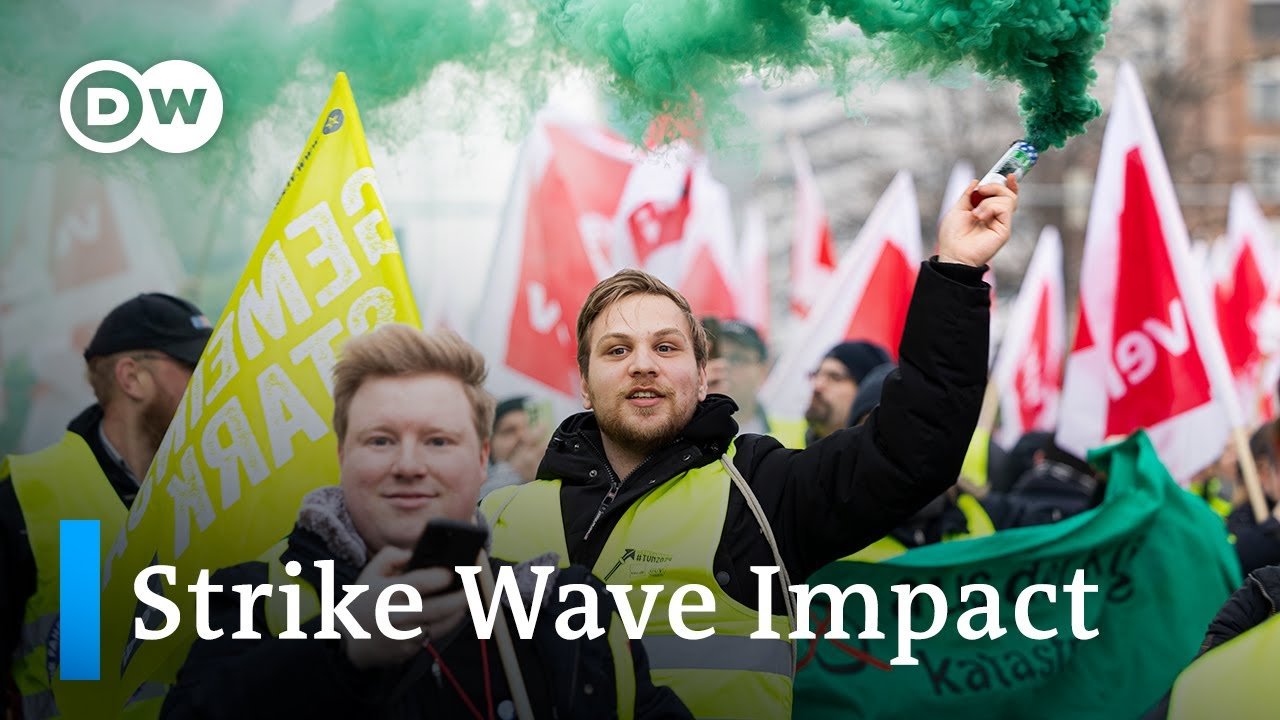Germany is currently experiencing significant labor unrest, with the latest in a series of strikes causing major disruptions to the country’s transport sector. Ground staff at Lanza, Germany’s flagship airline, have walked off the job demanding a 12.5% pay raise and an inflation bonus, leading to the cancellation of hundreds of flights. This strike is part of a broader pattern of industrial action across Germany, reflecting deepening economic challenges and a tight labor market. Despite relatively low unemployment rates and high job vacancies, real wages have stagnated over the past decade, and the high inflation of recent years has eroded workers’ purchasing power. This situation comes at a time when the German economy is facing a potential recession, weakened industrial production, and the impacts of broader geopolitical tensions.
- Germany is witnessing a significant wave of strikes, with the latest affecting the country’s flagship airline, Lanza, leading to hundreds of flight cancellations.
- Workers are demanding a 12.5% pay raise and an inflation bonus amid rising living costs.
- This strike is the fourth major industrial action in Germany since the start of the year, following the country’s longest-ever train strike a few weeks prior.
- The strikes reflect broader economic challenges, including a potential recession, weakened industrial production, and the negative impacts of geopolitical tensions on supply chains.
- Despite a drop in inflation to 2.9%, prices are still rising, exacerbating the cost of living crisis.
- Germany’s labor market remains tight, with low unemployment and high job vacancies, but real wages have hardly grown over the last decade, diminishing workers’ purchasing power.
- Experts anticipate more strikes and a strong position for employees to demand higher wages, despite a gradually worsening labor market and increasing business insolvencies.
- Demographic changes and the aging population in Germany present additional challenges for the labor market and potential for future strikes.
- The government is urged to provide more tailored support to lower income households to alleviate the impact of the cost of living crisis.
- Other labor disputes include farmer protests against the phase-out of fuel subsidies, adding pressure on the government to increase spending despite economic struggles.
- Germany’s historical reluctance towards strikes is changing, with the country experiencing a shift towards a more strike-prone culture, similar to neighboring European countries.
- Germany’s approach to wage moderation in the past has led to weaker private consumption compared to other European countries, signaling a need for a new balance in wage growth and economic policy.
DW News is a global news TV program broadcast by German public state-owned international broadcaster Deutsche Welle (DW).
AllSides Media Bias Rating: Center
https://www.allsides.com/news-source/deutsche-welle-media-bias
Official website: https://www.dw.com
Original video here.
This summary has been generated by AI.
